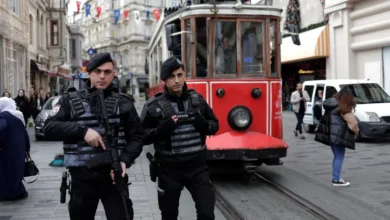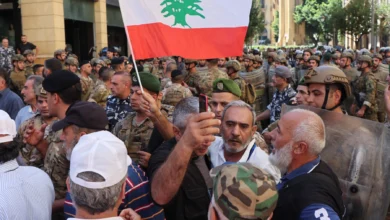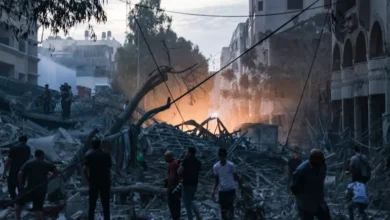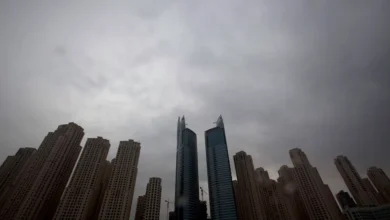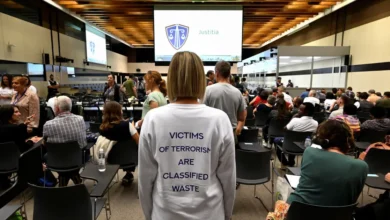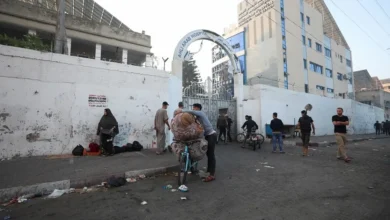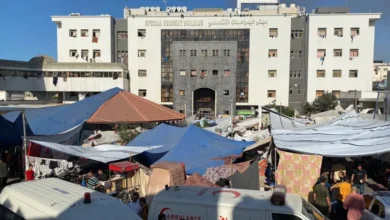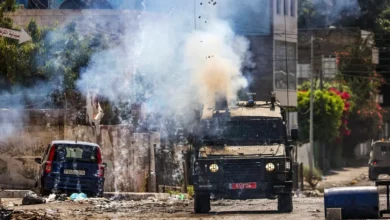Menstrual periods an ordeal, health risk for Gaza women and girls
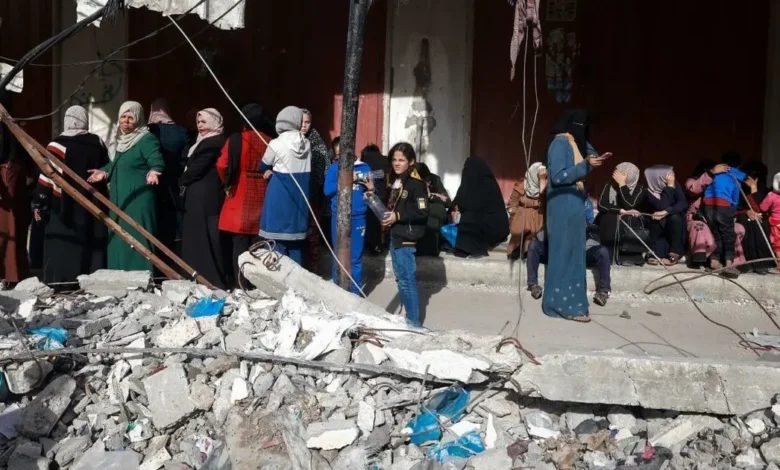
Women and girls getting their periods in Gaza face humiliating conditions and infections, forced to use diapers or scraps of cloth after more than two months of war.
Food, water and sanitary items are in desperately short supply across Gaza as around 80 percent of its 2.4 million people have been displaced by the conflict between Israel and Hamas.
“I cut up my kid’s clothes or any piece of cloth I find, and I use them like sanitary towels for my period,” said 25-year-old Hala Ataya in the southern city of Rafah where many have fled.
“I barely shower every two weeks,” she added.
Forced to leave her home in Jabalia refugee camp in northern Gaza, she came with her three children to a United Nations-run school, sharing a toilet and shower with hundreds of others.
The stench is nauseating in the toilet, which is filled with flies.
The streets of Rafah, adjacent to the Egyptian border, have been transformed into open-air latrines.
Piles of rubbish cover the city, which has become a vast refugee camp as most Gazans have been prevented from leaving the territory.
“We’ve gone back to the Stone Age. There’s no security, no food, no water, no hygiene. I’m ashamed, I feel humiliated,” said Samar Shalhoub, 18, who was displaced from Gaza City.
She has been surviving in various makeshift shelters which she described as overflowing with “filth.”
The war was triggered by the unprecedented October 7 attacks by Hamas militants who killed around 1,200 people in Israel, mostly civilians, according to local officials.
Retaliation by the Israeli military has killed around 18,000 Palestinians, also mostly civilians, according to the latest toll by the health ministry in Hamas-run Gaza.
‘She started to cry’
Unable to obtain sanitary products, Shalhoub has been using rags when she gets her period which have caused “chafing and skin infections.”
Requests for contraceptive pills have quadrupled as women seek to control their periods, said Marie-Aure Perreaut Revial, of Doctors Without Borders (MSF).
ActionAid said there was little water for washing, and that some shelters had only one shower for every 700 people and one toilet for every 150.
“There’s absolutely nothing: no privacy, no soap to keep themselves clean, no menstrual supplies,” the NGO said.
Ahlam Abu Barika, facing her third month of displacement, described personal hygiene as a “daily battle.”
“Women wear diapers or baby swaddling cloths. There’s not enough water,” said Abu Barika.
She has been eating and drinking less — to give more to her five children and to limit her trips to the toilet.
“I’ve lost 15 kilos,” she said.
Action Against Hunger, another NGO, said many women’s clothes were stained with menstrual blood and they were “using period products for longer than anticipated, increasing the risk of infection.”
In a classroom serving as a bedroom for displaced Gazans, Umm Saif said her five daughters were “all using Pampers” for their periods.
Diaper prices have almost doubled since the war so they cut each one in two, but one daughter still needed to use scraps of cloth.
“She started to cry, but I can’t do anything,” said Saif.

